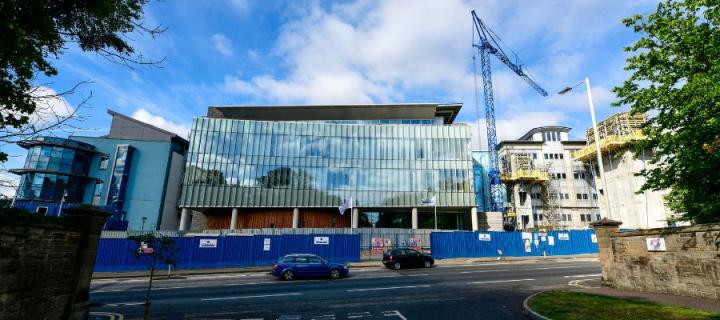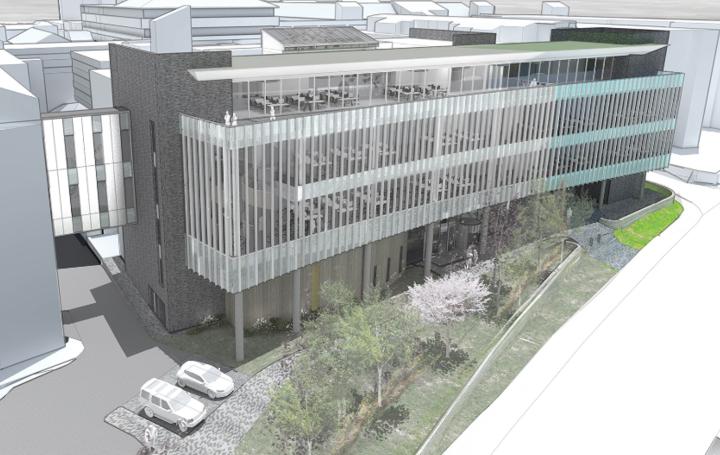Work under way on new 4D cellular medicine research facilities to provide unprecedented insights into human disease
Building work has commenced for the new building at the Western General Hospital site, which will allow scientists at the University of Edinburgh’s Institute of Genetics and Cancer to investigate genetic conditions and cancers in greater depth and detail than ever before: August 2022

The new 4D Cellular Medicine building, a joint investment by the Medical Research Council (MRC) and University of Edinburgh, will house upgraded state-of-the-art facilities for researchers to investigate human disease in astonishing detail.
The Institute of Genetics and Cancer is a strategic partnership of the MRC Human Genetics Unit (HGU), Edinburgh Cancer Research, and the Centre for Genomic and Experimental Medicine which together form a coalition of distinct world-class expertise in genetics and cancer.
The MRC Human Genetics Unit’s research is driving this exciting development.
Established more than 60 years ago, the HGU’s mission is to advance understanding of how the genome works and how changes in DNA influence human health and cause disease, and to apply this knowledge to improve healthcare.
Together with scientists and clinicians from Edinburgh Cancer Research, the Unit is working to tackle cancer, with particular focus on melanoma, colorectal, breast, ovarian, endometrial and brain cancer.
New research programmes have recently been initiated at Edinburgh Cancer Research to investigate sarcoma, renal cancer and intrahepatic cholangiocarcinoma – cancer occurring in parts of the bile ducts located within the liver.

The new building will bring new opportunities to investigate human disease in extraordinary depth and conduct leading research in the field of 4D cellular medicine.
Current research often looks at genes, cellular processes or cells in isolation, or takes a snapshot at a single point in time.
4D cellular medicine is a transformative approach to integrate this into an understanding of the structure and function of cells in their native tissue environment. Novel experimental and analytic approaches will enable the integration of molecular, genetic, biochemical and environmental information about the cell in the context of space (3-dimensional tissues or tumours) and over time (4-dimensionial).
Not only will this further disentangle the complex interaction of molecular pathways disrupted in disease but also pave the way to new drugs and therapies.
The new building will house specialist facilities that allow the function of individual cells to be investigated in extraordinary detail, generating complex data that will be analysed using artificial intelligence.
It will also include upgraded laboratories and other facilities including an improved bicycle store.
The project has been designed by Oberlanders Architects LLP, contracted to Robertson Construction Central East and is due to be completed in 2023.
“This new building and its state-of-the-art facilities are critical to our goal of understanding how molecules, cells and tissues work as dynamic biological machines, to improve health and treat disease”
Links
- More about the MRC Human Genetics Unit
- More about Edinburgh Cancer Research
- The Institute of Genetics and Cancer

